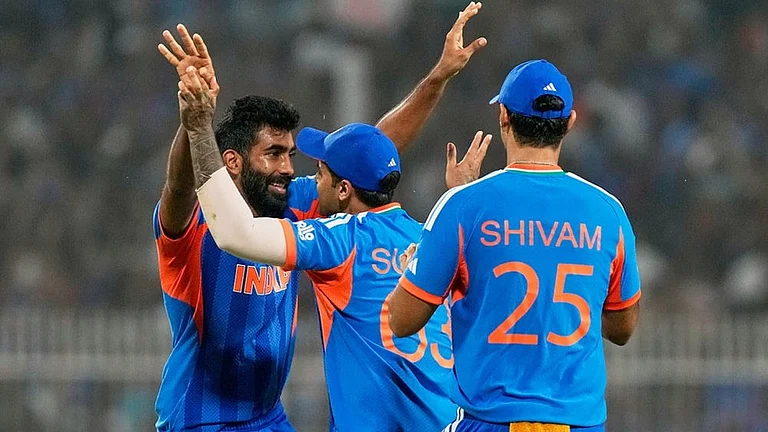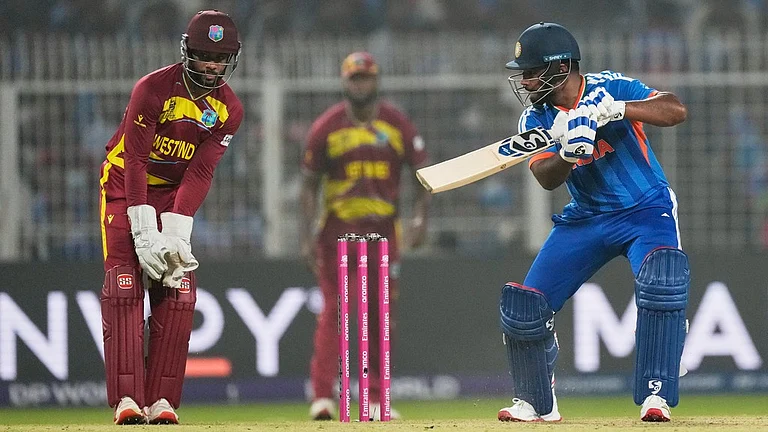On the seventh anniversary of demonetisation in India, Congress leader Jairam Ramesh charged the ruling Bharatiya Janata Party in the Centre for breaking the back of the Indian economy and said that the country won't forgive Prime Minister Narendra Modi for this 'monumental disaster'.
Congress general secretary, communications, Jairam Ramesh said in a statement that demonetisation along with a "badly designed" GST finished off India's job-generating small and medium businesses, caused a 45-year unemployment high, and ended the economic recovery that had begun in 2013.
He said seven years ago on November 8, 2016, Prime Minister Narendra Modi "inflicted" demonetisation on an unsuspecting nation.
"A decision that broke the back of the Indian economy and epitomised the unique combination of hubris, inhumanity and economic illiteracy that is the hallmark of the Modi government. A travesty repeated again with the unplanned, sudden lockdown on 24th March, 2020 which led to lakhs of migrant workers walking hundreds and thousands of km back home," he said.
"Who can forget the prime minister mocking people's suffering, laughing and saying 'ghar mein shadi hai, paisa nahi hai'? Who can forget the hundreds of poor and middle-class people who died waiting in long lines to convert their notes, even as the wealthy managed to exchange their banknotes with ease," he said.
"Demonetisation along with a badly designed and hurriedly rushed through GST finished off India's job-generating small and medium businesses, caused a 45-year unemployment high, and ended the economic recovery that had begun in 2013, all while failing to achieve any of its stated objectives.
"It led to a record concentration of wealth and power, particularly among a handful of large monopolies that have sustained the BJP financially even as the people continue to grapple with joblessness and price rise caused by the same monopolisation," Ramesh charged.
"In addition to devastating the economy and concentrating wealth in the hands of a few people, the Modi government has 'blood on its hands' for a reckless demonetisation. India will not forgive the prime minister for this monumental disaster," he said.
The Congress leader asserted that demonetization caused significant harm to the economy and completely reversed the GDP growth momentum that had been building since 2011. India's GDP growth rate had steadily risen from 5.2 percent in 2011 to 8.3 percent in 2016.
Then, the demonetisation disaster hit, and growth started to slow, all the way to four per cent just before the COVID-19 pandemic, he noted.
He said the economic damage of demonetisation is obvious no matter what data you look at and an IMF report from August 2018 said there was a “severe and long-lasting” impact on growth, with a “disproportionate impact on the informal sector.”
A study from Brown University found that demonetisation led to a large drop in consumption, forcing poorer households to go into debt, he claimed.
The MSME sector, which depends on the cash economy and provides the majority of employment in India, was devastated, he alleged.
Ramesh also said it led to the failure to achieve objectives, saying, "Demonetisation was a monumental blunder that failed to achieve any of the shifting goalposts that the Modi government had proposed as objectives—whether reducing the spread of black money, ending counterfeiting or making India cashless."
He also claimed that that 99.3 percent of the demonetised notes were returned to the RBI making it a complete and total failure of exposing any black money.
Demonetisation, he charged, was carried out "with haste, incompetence, and with a total and complete disregard to expert advice from the RBI".
He also noted that over 100 people died in queues and stampedes, trying to access their own money.


























